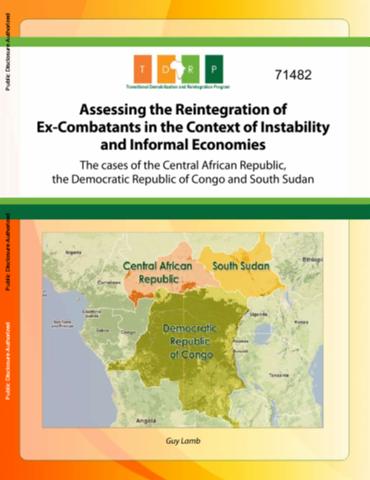Resource information
The implementation of effective Disarmament, Demobilisation and Reintegration (DDR) programmes in countries emerging from violent conflict are essential for building and maintaining peace and security. In many instances the disarmament and demobilisation of former combatants was achieved, but reintegration remained a challenge, due to the long-term focus and the substantial resources that are required for such a process to be successful. Reintegration processes are, nonetheless, often implemented in fragile environments, that include fragmented economies, in which most income generating activities are informal or unreported. Such economies are often characterised by unregulated, illicit activities, in which official governance is weak. This report is comprised of three parts. Part one includes a review of the literature on the reintegration of former combatants and the informal economy in Africa; a synopsis of post-conflict economies; and an outline of the analytical framework. Part two presents the findings of the case study research, focusing on the economies and DDR processes in each of the three countries, as well as assessing the reintegration process in relation to the informal economy. The third component of the report provides a comparative analysis of, and conclusions from, the research findings.


